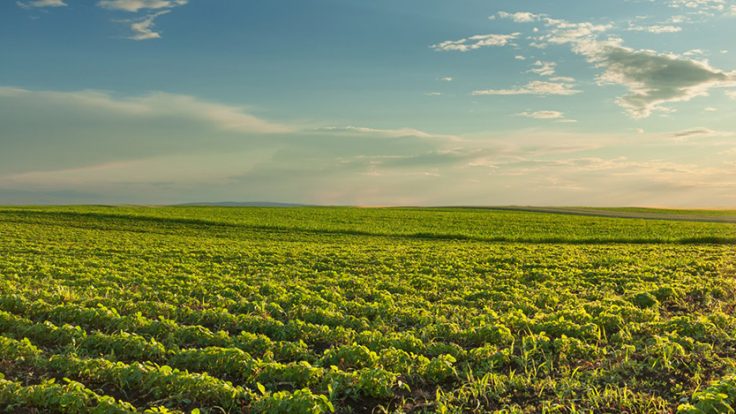ImpactAlpha, April 22 – It has taken the team of scientists at Ceradis more than a decade to develop a line of earth-friendly agriculture products. Now, with several on the market, the Dutch company has raised €9 million ($10 million) to commercialize a new biofungicide that prevents crop disease. The equity round was backed by Dutch impact investors Waterman Ventures and Pymwymic and existing backer, life sciences venture investor Van Herk Investments.
“Consumer and regulatory pressure to use less chemicals in crop protection is getting ever stronger,” Pymwymic’s Pieter Vis said. “We as impact investors are very excited about joining Ceradis and helping farmers feed the world in a sustainable way.”
Ceradis launched in 2007 out of the agricultural research facilities at Wageningen University in the Netherlands, armed with several patents, €300,000 in capital, and a mission to create plant nutrition and crop protection products that were safe for consumption and the environment. It has 13 product variations on the market, which it distributes through partners, namely large agricultural companies.
“We focus on the research and development and intellectual property to deliver products, but we don’t sell them ourselves,” said Willem-Jan Meulemeesters, who joined Ceradis as CEO in 2015. The company’s fungicide Ceraxel, which is used to protect grape vines, is sold to farmers by Syngenta. Ceradis also makes a banana fertilizer called MusaCare CP that has been adopted by Dole.
Ceradis’ existing products aren’t replacements for chemical fertilizers and pesticides; rather they’re “entrapment” solutions that are coupled and sold with existing chemical products and slow the release of active ingredients, allowing farmers to reduce and stretch chemical applications.
“[Entrapment] doesn’t fully replace a single product, it reduces the amount. Most of the concerns [about chemical products] are linked to the dose rate,” Meulemeesters said.
Reduce versus replace
Reducing the global agriculture chemical load is Ceradis’ goal, and eventually, the company would like to see more agricultural biologicals completely replace chemical products. Its new biofungicide CeraMax may be its first that can.
CeraMax is made from a bacteria-derived molecule that Ceradis says is as effective as existing chemical products, has a long shelf-life and is completely safe for human consumption. “It targets only fungi, so it is actually extremely safe for non-target organisms,” Meulemeesters said, explaining that CeraMax will be tolerance-exempt under the U.S. Environmental Protection Agency (EPA), meaning it is deemed safe enough that there will be no set maximum residue level in foods.
Another benefit, he added, is that farmers don’t have to compromise on the product’s efficacy. “With the overall movement to biologicals, producers usually have to accept a trade-off. But there are chemicals that this could replace.”
It has taken the Ceradis team more than a decade to get CeraMax this close to market: the product has been in the works since Ceradis was still based at Wageningen. With its latest funding, the company will develop and register crop-specific formulations of CeraMax in the U.S., where the regulatory environment for biologicals is easier to navigate than Europe.
“A minority of countries are assisting the transition to more environmentally friendly agriculture. The U.S. and Brazil have developed a specific route to market for biologicals, for example,” Meulemeesters explained. “Europe doesn’t do this. There, we have to follow the route of a chemical product. It’s actually worse, because the chemical route doesn’t fit the purpose. [The regulations] are antiquated.”
Ceradis expects CeraMax to enter the market for high-value applications, like seed and post-harvest treatment before becoming eligible for mass market use.











